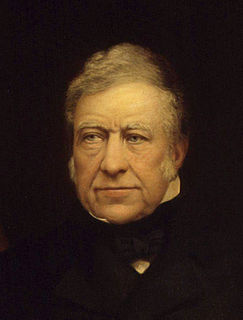A Quote by David Ricardo
If then the prosperity of the commercial classes, will most certainly lead to accumulation of capital, and the encouragement of productive industry; these can by no means be so surely obtained as by a fall in the price of corn.
Related Quotes
Population regulates itself by the funds which are to employ it, and therefore always increases or diminishes with the increase or the diminution of capital. Every reduction of capital is therefore necessarily followed by a less effective demand for corn, by a fall in price, and by a diminished cultivation.
We wish to control big business so as to secure among other things good wages for the wage-workers and reasonable prices for the consumers. Wherever in any business the prosperity of the business man is obtained by lowering the wages of his workmen and charging an excessive price to the consumers we wish to interfere and stop such practices. We will not submit to that kind of prosperity any more than we will submit to prosperity obtained by swindling investors or getting unfair advantages over business rivals.
Remember that accumulated knowledge, like accumulated capital, increases at compound interest: but it differs from the accumulation of capital in this; that the increase of knowledge produces a more rapid rate of progress, whilst the accumulation of capital leads to a lower rate of interest. Capital thus checks it own accumulation: knowledge thus accelerates its own advance. Each generation, therefore, to deserve comparison with its predecessor, is bound to add much more largely to the common stock than that which it immediately succeeds.
Our rulers will best promote the improvement of the nation by strictly confining themselves to their own legitimate duties, by leaving capital to find its most lucrative course, commodities their fair price, industry and intelligence their natural reward, idleness and folly their natural punishment, by maintaining peace, by defending property, by diminishing the price of law, and by observing strict economy in every department of the state. Let the Government do this: the People will assuredly do the rest.
We should not value education as a means to prosperity, but prosperity as a means to education. Only then will our priorities be right. For education, unlike prosperity is an end in itself. .. power and influence come through the acquisition of useless knowledge. . . irrelevant subjects bring understanding of the human condition, by forcing the student to stand back from it.
I am deeply convinced that any permanent, regular administrative system whose aim is to provide for the needs of the poor will breed more miseries than it can cure, will deprave the population that it wants to help and comfort, will dry up the sources of savings, will stop the accumulation of capital, will retard the development of trade, and will benumb human industry.
When you have weird policy decisions in the United States that then ripple out throughout the world, the rest of the world really takes it on the chin. When the U.S. decides to set their corn on fire rather than to eat it, which is what the biofuels policy basically is - then that drives up the price of corn. It drives up the price of substitutes. And all of a sudden you have a sort of spiral of food prices. And other countries don't have the resources, because they're not allowed to, to weather the storm.

































